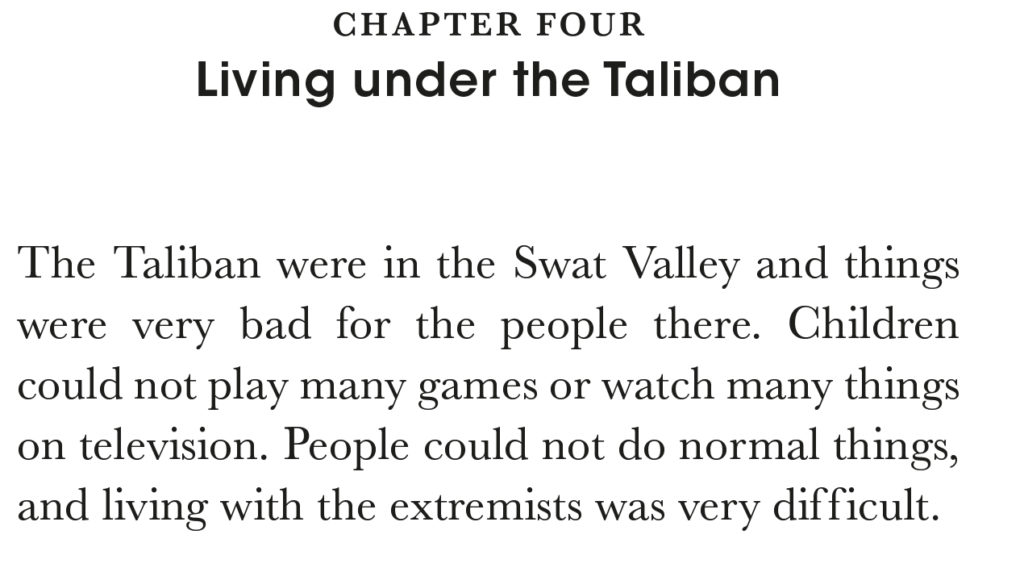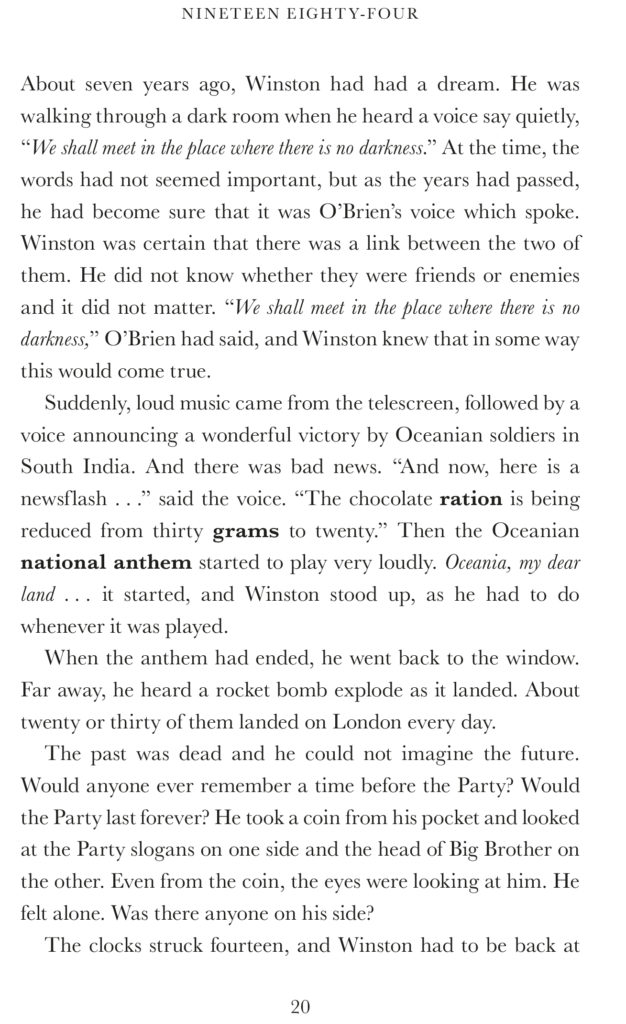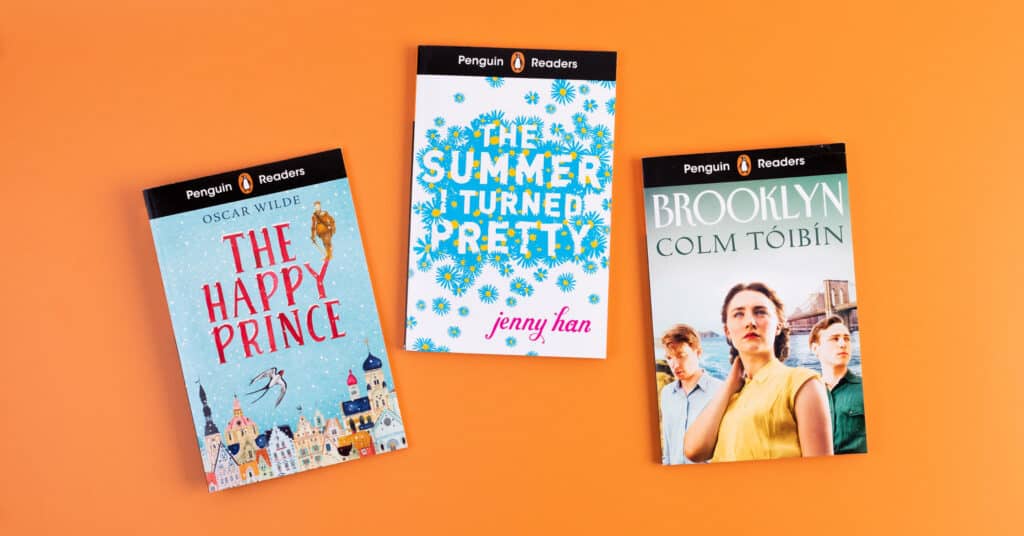New Penguin Readers Activities For Your Classroom
Earlier in 2021 we published 20 new Penguin Readers. These included popular classics from renowned authors such as George Orwell, contemporary novels like The Kissing Booth and an array of fascinating non-fiction. If you are looking for ways to focus on key language points in English, here is a range of new activities that can be used in classrooms or virtually.
The Extraordinary Life of Malala Yousafzai (Level 2)
1. Set the scene
The first page can be used effectively with a class to come up with an outline and set the scene of the book. Encourage learners to work in pairs or small groups either in break-out rooms for online learning or in the classroom. Students should brainstorm what they know about Malala or make predictions about what they think happened to her. If students are using online platforms, ask them to make a note of their ideas on an interactive whiteboard or use an app like Menti Meter where the whole class can add to a word cloud. The word cloud can then be used to concept check and discuss key ideas.
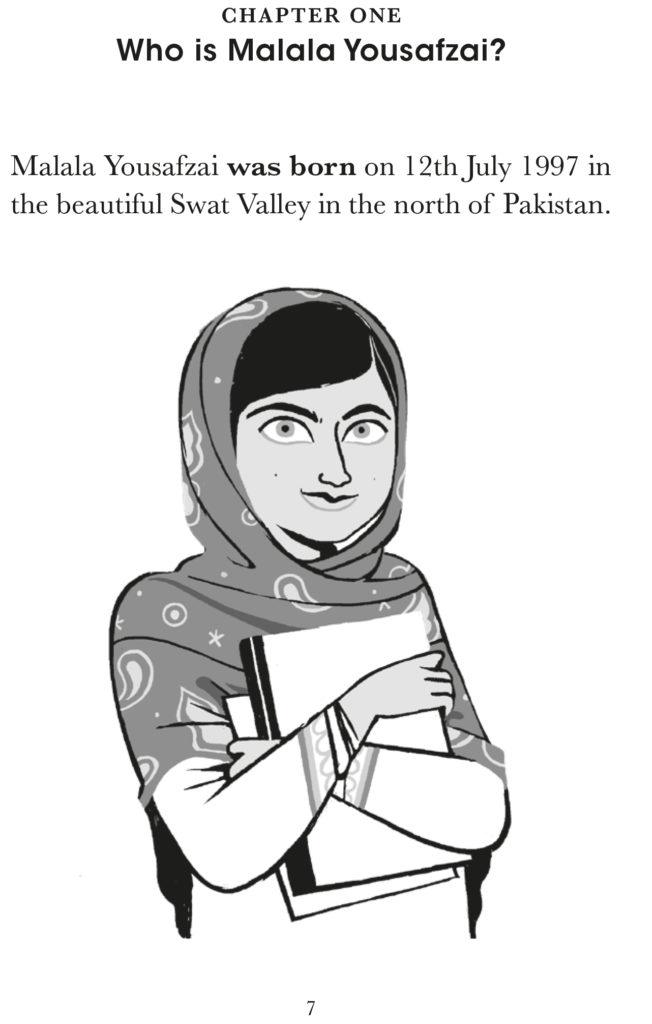
2. Focus on grammar
There are many examples of the past simple tense using both irregular and regular verbs on pages 8 and 9 of the book. Ask students to read the pages and identify all the examples of the past simple tense. Following that, ask them to categorise the verbs into regular or irregular verbs. Then look further into regular verbs and focus on pronunciation. Next, students can categorise the verbs into one of the three sounds.
E.g.
| Regular Verbs | Irregular Verbs |
| wanted | was |
| loved | came |
| played | began |
| called | made |
| changed | thought |
Regular verbs
| /id/ | /d/ | /t/ |
| wanted | loved | |
| played | ||
| called | ||
| changed |
Ask students to think of examples of regular past simple verbs that have a /t/ pronunciation such as: Walked / danced / talked / cooked / helped.
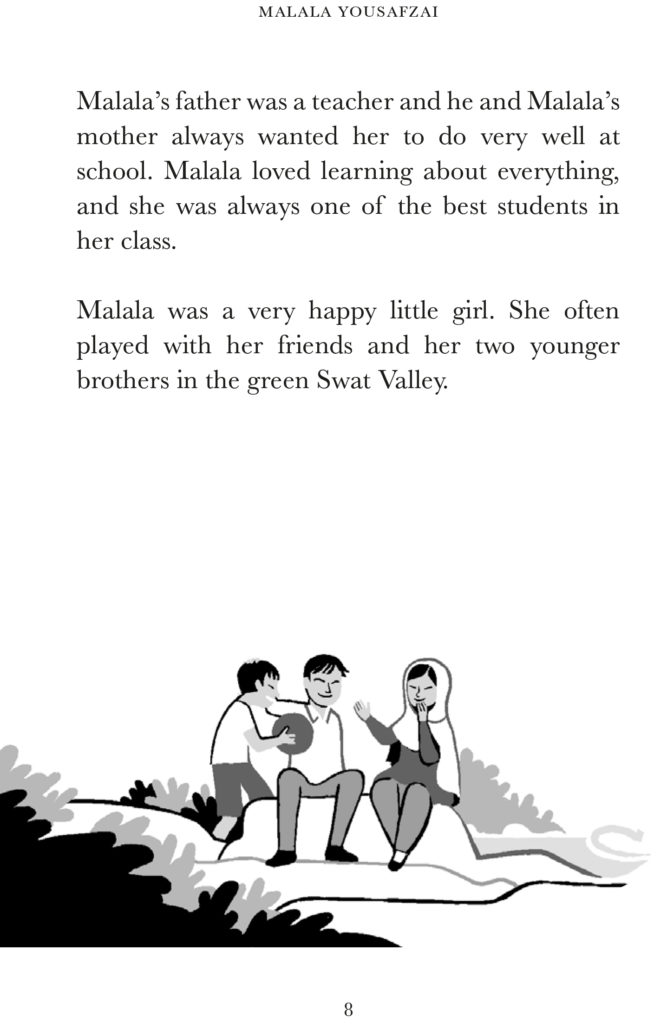
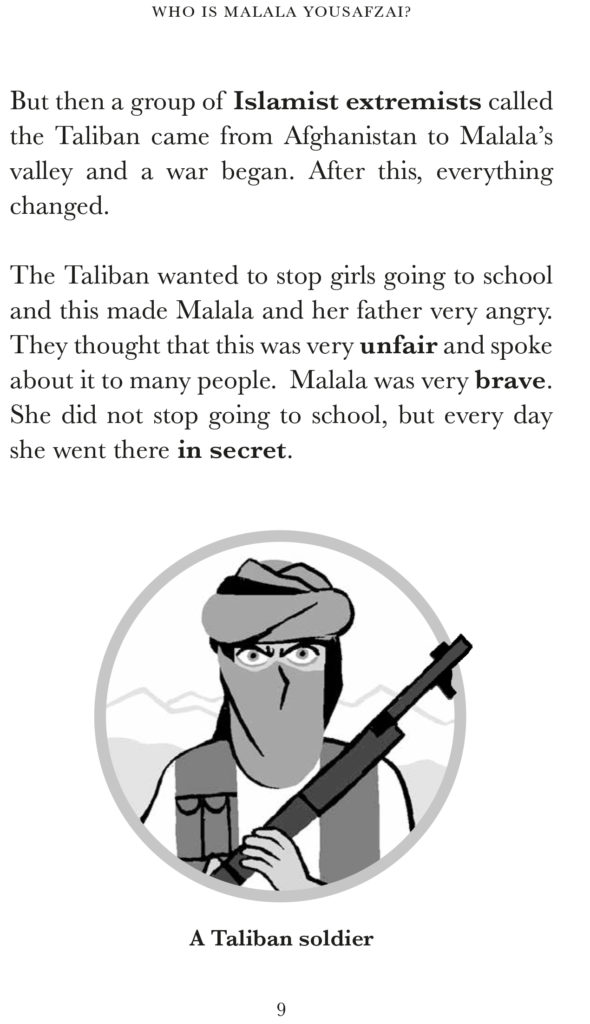
3. Read and draw task
To begin this activity, one student should read the page to a partner and the partner should listen for key details. Then the partner should draw what they have understood. This can be a fantastic way to help reluctant readers really get to grips with key details about a description of a place or character within a book. Use the example text below describing The Swat Valley in Pakistan.
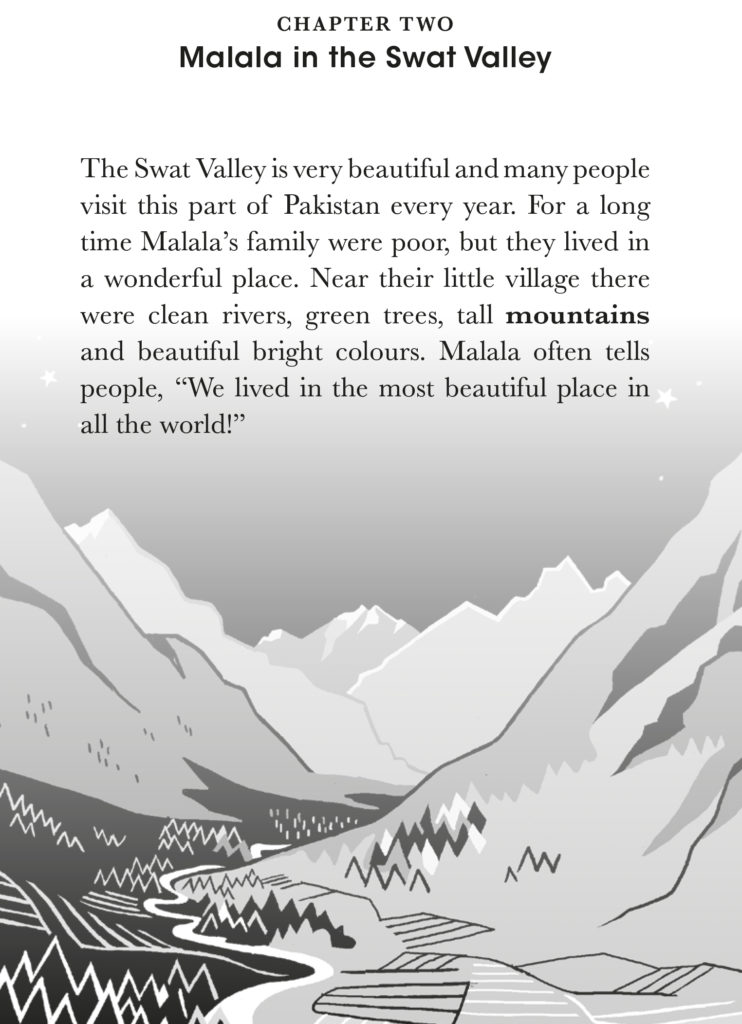
A dictogloss is a useful EFL technique to use in the classroom. It is a form of dictation, but the activity is collaborative and it’s a super way to integrate a range of skills. Underneath is a small sample of text taken from page 29 of the book that could be used in a dictogloss task.
How to use the technique:
- The teacher reads the text to the class. (auditory)
- The teacher reads it for a second time and tells the students they can make notes. (auditory) (note-taking)
- The teacher reads for the third time. (auditory) (note-taking)
- The teacher puts the students into pairs or small groups, and they discuss together their notes and what they understood. (speaking) (vocabulary)
- The groups try and recreate the text. (writing, spelling, sentences, punctuation)
- Go through together as a class. (writing)
- Students compare the original text to their own completed text. (reading)
Living under the Taliban
1984 by George Orwell (Level 7)
1. Look at phrases and what they mean
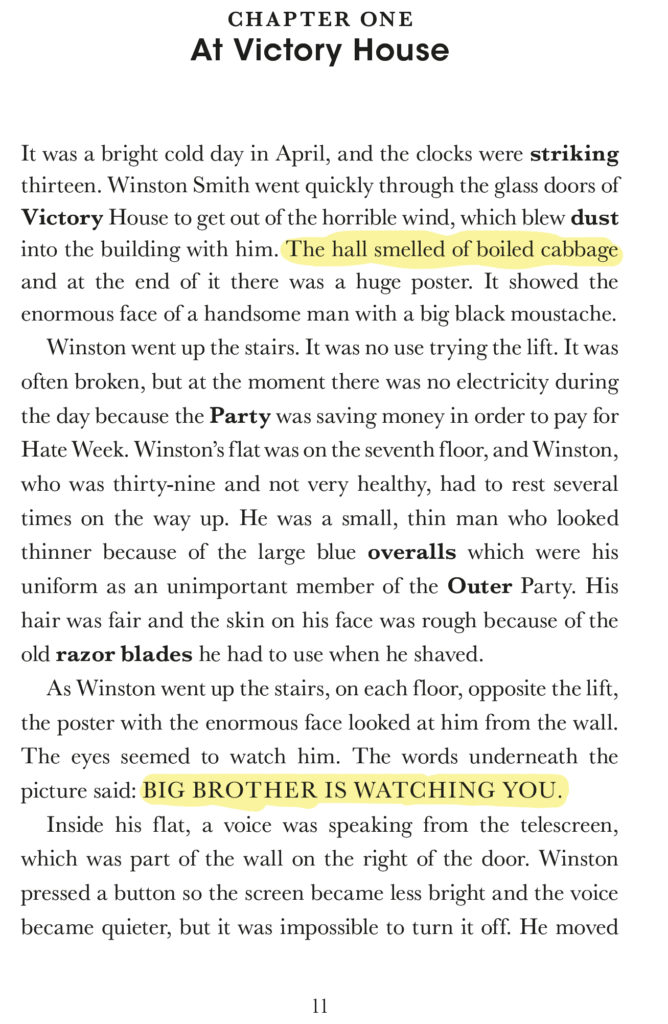
“The hall smelled of boiled cabbage”
Ask students to come up with synonyms that equal something smelling of boiled cabbage.
Ask them what other items can they reference as smelling of boiled cabbage.
Ask students how it makes them feel when they think of boiled cabbage.
“BIG BROTHER IS WATCHING YOU.”
Ask learners what it means if Big Brother is watching you and how can this be related to modern-day society.
2. Using the blurb
The blurb can be used in a variety of ways:
- To help students understand the main idea before reading.
- Ask students to write their own blurb of the book based on their understanding.
- Tippex out some of the key words in the blurb and ask students to fill in the gaps appropriately.
blurb
3. Using reading for debate and discussion activities
On page 20 it talks about the rationing of chocolate. Use this as a focal point to discuss the idea of rationing in general.
page 20
Example questions:
- What product would you find hard to ration?
- Could you ration chocolate?
- Why was rationing introduced?
- Do you think rationing is something that will reoccur in the future?
Romeo and Juliet (Starter Level)
1. Using the front cover to elicit ideas
Show your students the front cover and ask them to pay particular attention to the colour red. Use this to activate their imagination and encourage any predictions they may have.
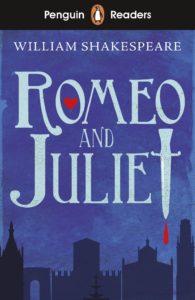
2. Finish the sentence
Focus on the first page of the book. Ask your students to read the short summary sentence and think about the word ‘enemies’.
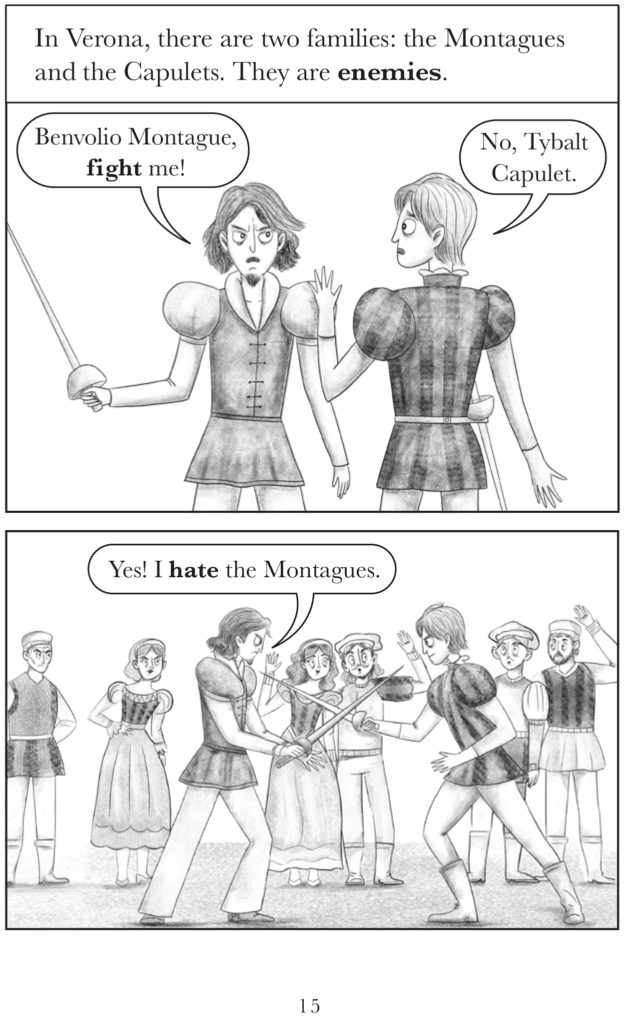 Encourage students to come up with ideas to finish the sentence:
Encourage students to come up with ideas to finish the sentence:
Enemies are………………………………………………………
3. Re-enacting
Ask your learners to look at the pictures on page 15 above and act out the scene.
Draw their attention to the two key words in bold: fight and hate.


